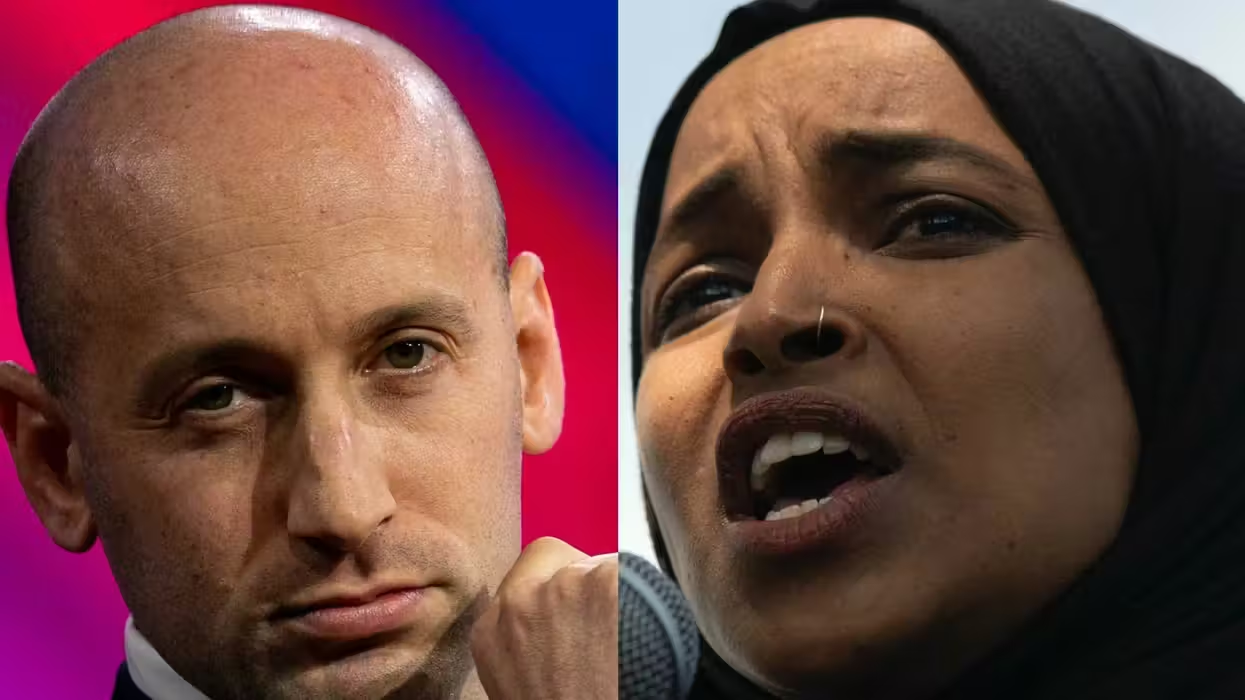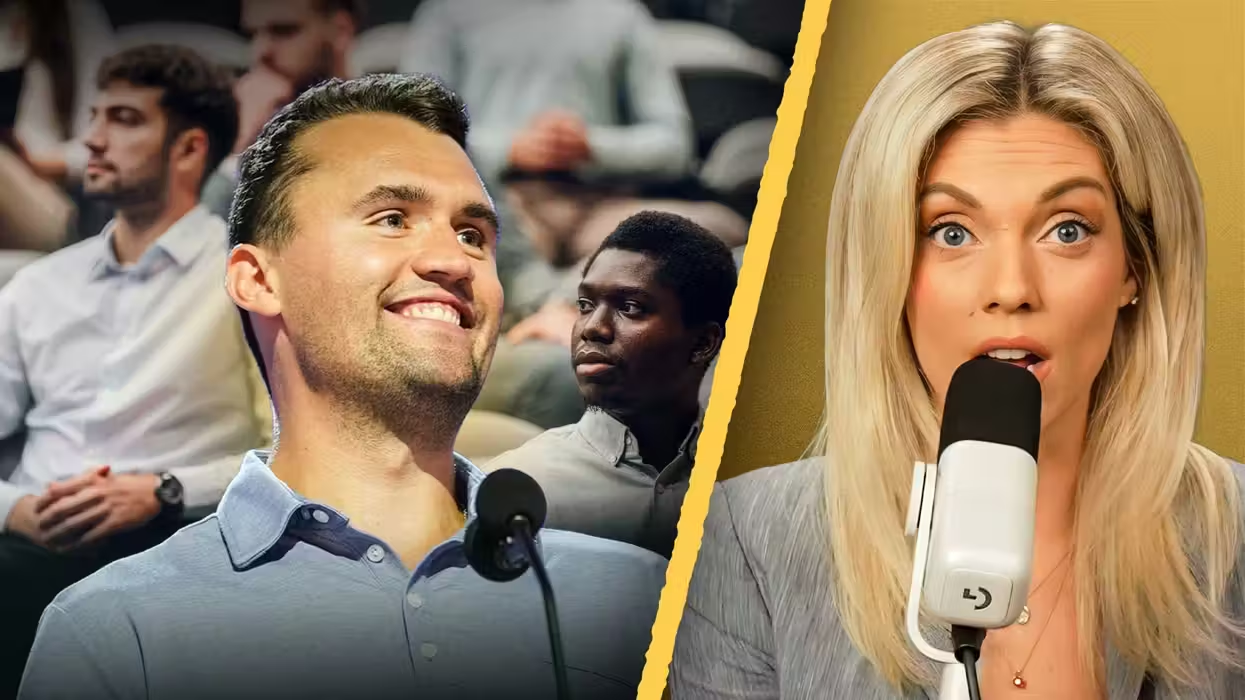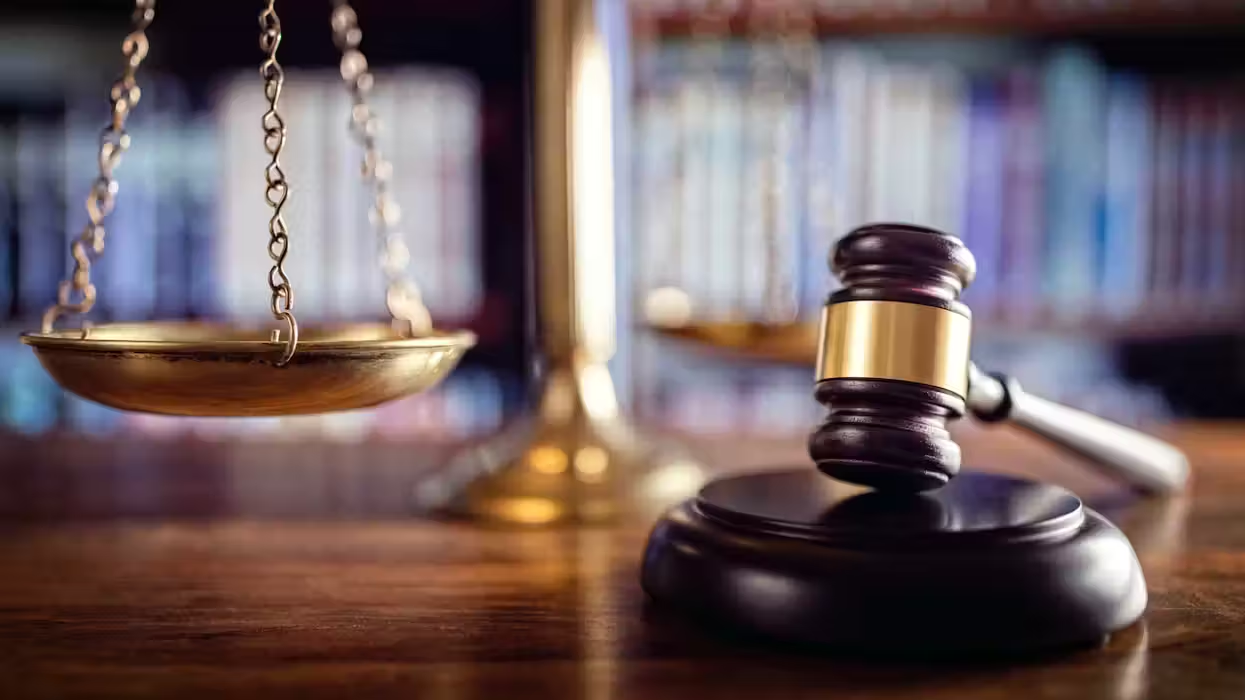
© 2025 Blaze Media LLC. All rights reserved.
"...these beverages are harmful to young people."
Maryland lawmakers have joined the ranks of some cities and states in their crusade against energy drinks being marketed and sold to children.
Kathleen Dumais, a democratic delegate in the state, introduced legislation this week that would ban the sale of energy drinks, like Red Bull and Monster, among a plethora of other brands, to minors.
"An enormous and rapidly growing market is developing around the sale of energy drinks to minors," Dumais said, according to WJLA-TV. "At the same time, we have mounting evidence that the high levels of caffeine and other stimulants in these beverages are harmful to young people."
 n this June 3, 2008 file photo, Megan Ward, left, drinks an energy drink with her friend Mykel Prescott from Parker, Colo., at Ward's home in Castle Rock, Colo. The journal Pediatrics published online Monday, Feb. 10, 2014, results of research into trends in the caffeine intake among children and young adults. (AP/Jack Dempsey, File)
n this June 3, 2008 file photo, Megan Ward, left, drinks an energy drink with her friend Mykel Prescott from Parker, Colo., at Ward's home in Castle Rock, Colo. The journal Pediatrics published online Monday, Feb. 10, 2014, results of research into trends in the caffeine intake among children and young adults. (AP/Jack Dempsey, File)
Maryland isn't the first to consider such a move against energy drinks for children. In May 2013, the city of Los Angeles took aim at Monster, suing the company for marketing it's drinks to kids. Earlier this year in January, L.A. lawmakers began looking into a ban on the sale of such drinks to minors. The city of Chicago also has discussed the possibility of a ban.
In November 2013, a grocery chain in the U.K. made the decision to stop selling energy drinks to individuals who were under age as well.
Not everyone agrees that the government should get involved though.
"It's not my responsibility to police who buys a Coca-Cola or a Monster Energy drink," Jim Kurtz, owner of a Shell gas station in Hillandale, Md., told WJLA. "I mean, where does this stop?"
Kurtz added that though he sells about $350 per week in energy drinks, it's not lost profit that irks him, but the mere regulation, the news station reported.
Watch WJLA-TV's report:
Dumais acknowledged this perspective but made a distinction to the Washington Post.
“Adults can do what they want,” Dumais told the Post. “I just think we have to be a little more careful with kids.”
A recent study from the U.S. Centers for Disease Control and Prevention found three out of four U.S. children and young adults consume at least some caffeine. Though this caffeine intake isn't new in the last decade, the study did find that though soda drinking went down, energy drink consumption went up.
The analysis is the first to examine recent national trends in caffeine intake among children and young adults and comes amid a U.S. Food and Drug Administration investigation into the safety of caffeine-containing foods and drinks, especially for children and teens.
When it comes to energy drinks, the study, published in the journal Pediatrics, found that least through 2010, energy drinks were an uncommon source of caffeine for most U.S. youth. In 2010, 10 percent of daily caffeine came from energy drinks for 19- to 22-year-olds; 2 percent for 17- to 18-year-olds, and 3 percent for 12- to 16-year-olds. For younger kids, the amount from energy drinks was mostly minimal or none during the study.
Watch this report about the study:
Still, the use of energy drinks increased rapidly during the study, even if they didn't amount to a big portion of kids' caffeine intake, and that rise "is a trend researchers are going to keep their eyes on," lead author Amy Branum, a health statistician at the CDC's National Center for Health Statistics, said.
The American Academy of Pediatrics recommends against caffeine consumption for children and teens because of potentially harmful effects from the mild stimulant, including increases in heart rate and blood pressure, and worsening anxiety in those with anxiety disorders.
Some have also accused energy drinks of leading to extreme events like abortions and heart attacks.
The Associated Press contributed to this report. Featured image via Shutterstock.
Want to leave a tip?
We answer to you. Help keep our content free of advertisers and big tech censorship by leaving a tip today.
Want to join the conversation?
Already a subscriber?
more stories
Sign up for the Blaze newsletter
By signing up, you agree to our Privacy Policy and Terms of Use, and agree to receive content that may sometimes include advertisements. You may opt out at any time.
Related Content
© 2025 Blaze Media LLC. All rights reserved.
Get the stories that matter most delivered directly to your inbox.
By signing up, you agree to our Privacy Policy and Terms of Use, and agree to receive content that may sometimes include advertisements. You may opt out at any time.






